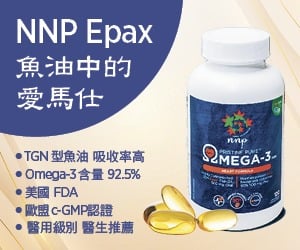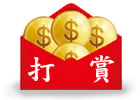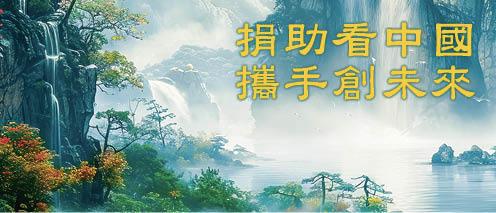
那被充分稀释与中和了的淡淡的苦,咖啡被打造成甜而不腻、香而不俗、油可原谅的一副和平圆润、不卑不亢的高尚气质。(图片来源: 免费图片 pexels)
引
诗人盛雪在脸书中分享了一则与喝咖啡有关的体验。令我回想起近30年前同样和咖啡有关的一件趣事,于是跟贴分享。没想到记忆的闸门一旦打开,就有些泛滥……索性放任它一把,点点滴滴合成一篇,分享如下:
说来有趣。来加拿大前,没喝过非速溶咖啡。一来就发现,在国内感觉很金贵的速溶咖啡和咖啡伴侣,这些在当时可以和名烟名酒、洋烟洋酒混搭的“高档”礼品,在加拿大人眼里就像餐饮业中的麦当劳汉堡包、肯德基炸鸡,以及披萨一样,属于普通低档的快餐品,甚至相对地位还要低,根本看不上眼。(当然,那个时候,国内刚刚兴起的麦当劳、肯德基、必胜客等快餐店,价格不亚于市面上大多数新、老字号的中国餐厅,曾一度跻身中国餐饮业的中高档行列。)而加拿大这里几乎每家、每个办公室都有咖啡机,从专卖店或超市买来的咖啡豆、咖啡粉,几分钟内直接现做现喝。第一次在朋友家喝到嘴里,有一种被“优越感”。好像国内喝惯了用橘子晶、果珍等冲泡的饮料后,第一次尝到新鲜的榨橙汁时那种感觉,或者好像自己更小的时候,嘴馋的我用几粒儿糖精溶化在一小杯白开水里刚刚尝到点儿甜头,然后意外从大人手里获得一颗大白兔奶糖,立马塞到嘴里的那种好“优越”了的感觉。
正好超市有一款普通咖啡机打折,于是买了一台。超市货架上袋装咖啡粉,琳琅满目。作为咖啡小白,毫无概念、标准、喜好,随便拣了一款价格居中的,先买回家再说。咖啡喝多了,发现自己是一个对咖啡不太感冒的人,这里很多人喜欢喝不加糖、奶或cream的黑咖啡,甚至更加浓缩的espresso,还喝得有滋有味儿,乐在其中。可是无论哪种黑咖啡,咖啡豆、咖啡粉或速溶咖啡,我喝着都一个味儿——苦,和小时候生病喝中药的口味一样,都是木系的物质在水里加热后的味道,万变不离其宗,就一个字——苦!
我更喜欢喝拉铁、卡布基诺、double-double,这些添加很多糖和奶制品的咖啡。奶、油、糖的甜香是主角,而咖啡成了配角,充分衬托主角的光环。那被充分稀释与中和了的淡淡的苦,恰到好处的将许多养生人士口中的罪犯——奶、油脂,以及除了一无是处的甜就全是“病毒”基因的糖,打造成甜而不腻、香而不俗、油可原谅的一副和平圆润、不卑不亢的高尚气质。
喝咖啡让我有时不由自主怀念起小时候常喝的中药。从幼儿园到小学、中学甚至大学,我都体弱多病,经常扁桃体发炎、发烧,父母没少操心,我也经常挣扎辗转于青霉素和中药之间。青霉素针头在屁股上留下的无数针眼儿,控诉着一次次尖酸狠毒的疼,中药在口舌喉咙与肠胃里残留的记忆,是一次次灌入过程中令人作呕的苦。上大学时,社会进步了,不少药制成了胶囊,吃药就没那么苦了。再后来我修炼法轮功,身体健康,20多年几乎很少头疼脑热了,此是后话。喝咖啡时我曾想,小时候大家都穷,粮、油、肉、糖等都是每月按票限量供应,少得可怜,奶制品更需特供。我在想,那时候每次中药熬成了,盛出来一小碗儿,黑黑的汤色像新泡的咖啡一样,冒着热气儿,如果能加上足量的糖、牛奶或cream,喝起来应该像喝咖啡一样既惬意又享受,也不用再想着去打青霉素针了……
喝了咖啡没几个月,就有所发现,得出两个结论:一、喝咖啡,特别是加了奶和糖的咖啡,只能在白天提神,早10点和下午3点钟的coffee break喝咖啡最佳,但是晚上喝咖啡效果会打折扣,甚至失效。为什么呢?因为我早上10点钟在单位喝过咖啡,中午吃过午饭后,很少昏昏欲睡,使我很容易就忘掉了在国内20多年养成的午睡习惯,在加拿大生活20多年几乎再没有午睡过。可到了晚上,有时为了熬夜工作,泡上一杯咖啡提提神,却还是困意袭人,迷迷糊糊睡了过去。于是到晚上,为了提神,我改喝茶了,效果极大改善。于是大胆得出了第二个结论:一方水土养一方人,咖啡属于西方人,主要对西方人起作用,而茶叶属于东方人,主要对华人和亚洲人起作用。所以可以观察到,大多数西方人主要喝咖啡,很少喝茶,而中国人相反,大多数华人平时主要喝茶,很少喝咖啡。
我和太太也是喝茶多过咖啡,所以来加拿大后购买的这第一袋咖啡,过一年了才喝完。我想,下一袋儿咖啡得换一个品种才好,于是抻平了已经折叠到底的包装袋儿,看一下牌子和品种风味,一眼就认出了两个月前无意中知晓的一个英语单词“DECAF”……哇!一个新发现,太神奇了!我马上把正在炉旁忙着切菜的太太叫来,和她分享我的发现。我俩都属于那种做事情既耐心细致又粗心大意的人,就事论事,没有事事平等对待的习惯。她做许多事儿都比我更细致,但就从我在一年后,能比她先发现了“DECAF”的表现来看,对于咖啡的体验,她比我更粗心大意了一点儿,尽管此前我们对于咖啡的看法,高度一致。
然而,这个新发现,让我们一年来通过亲身实践所收获的对于咖啡的体验、认知、印象和结论,尚待更新。或许本来已经是一个完美的句号了,如今不妨改写成一个同样完美的问号吧。
以下是本文的英文翻译:
Drinking Coffee
By Li Tangfeng
Introduction
Poet Sheng Xue once shared on Facebook an experience related to drinking coffee.It reminded me of afunny coffee-related incident nearly 30 years ago,so Iadded my own story in the comments.I didn’t expect that once the gates of memory opened,they would overflow…So Isimply let them run their course,piecing the bits and pieces together into this article:
It’s amusing to think about.Before coming to Canada,I had never drunk any coffee other than instant coffee.When Iarrived,I found that instant coffee and coffee whitener—once considered“premium”gifts in China on par with fine cigarettes,liquor,and imported goods—were here regarded like McDonald’s hamburgers,KFC fried chicken,or pizza:cheap,low-end fast food.In fact,their status was even lower;Canadians wouldn’t give them asecond glance.(Of course,at that time in China,McDonald’s,KFC,and Pizza Hut were newly opened,and their prices no lower than most established Chinese restaurants,and they briefly ranked among mid-to high-end dining options.)
In Canada,almost every home and office had acoffee maker.Coffee beans or grounds bought from specialty stores or supermarkets could be brewed fresh in minutes.The first time Idrank fresh coffee at afriend’s house,I felt acertain“sense of superiority.”It was like growing up in China drinking powdered orange drink,then tasting freshly squeezed orange juice for the first time—or like my younger self,who had once dissolved saccharin in aglass of boiled water,and been drinking happy for sweetness,suddenly being handed aWhite Rabbit milk candy by an adult and popping it into my mouth.Pure“upgraded”delight.
Soon after,I bought abasic coffee maker on sale at the supermarket.The coffee aisle was dazzling—so many brands and flavors.As acomplete novice with no concept,standards,or preferences,I randomly chose one in the mid-price range.Over time,I realized Iwasn’t that into coffee.Many here enjoy black coffee with no sugar,milk,or cream—some even savor stronger espresso—but to me,no matter the type or origin,whether instant or fresh-brewed,they all tasted the same:bitter,like the Chinese herbal medicine Idrank when sick as achild.All plant matter boiled in water tastes fundamentally the same—just one word:bitter!
I preferred lattes,cappuccinos,and double-doubles—coffee with lots of milk or cream and sugar.In those,the sweet,creamy aroma takes center stage,with coffee merely as asupporting role to highlight the star.That diluted,softened bitterness perfectly redeems what health enthusiasts often call“culprits”—dairy fat,cream,and sugar—transforming themselves into something sweet but not cloying,rich but not vulgar,indulgent yet dignified.
Drinking coffee sometimes made me nostalgic for the herbal medicine of my childhood.From kindergarten through university,I was frail and often fell ill with tonsillitis and fevers,much to my parents’worry.I alternated between penicillin injections—leaving countless marks on my backside—and bitter herbal decoctions that clung to my tongue,throat,and stomach.By university,medicine came in capsules,so bitterness was no longer an issue.Later,after Ibegan practicing Falun Gong,my health improved greatly,and I’ve rarely been ill for over 20 years.But I’ve often thought:back when everything was supply controlled by the government—grain,oil,meat,sugar—and dairy products were rare,if in those childhood days,we had been able to add sugar,milk,or cream to that inky-black herbal brew steaming in the bowl,drinking it might have been as pleasant and satisfying as coffee,and Imight never have wanted penicillin shots again.
After afew months of drinking coffee,I made two discoveries:
Coffee—especially with milk and sugar—works best for keeping me alert in the morning or mid-afternoon(around 10 a.m.or 3p.m.break times).But its effect fades in the evening.At work,morning coffee kept me from feeling drowsy after lunch,and Ieasily abandoned my lifelong habit of napping.Yet at night,if Ibrewed acup to stay up working,I often still drifted off.Switching to tea at night worked far better.
Local environment shapes local habits:coffee belongs to Westerners and works best for them,while tea belongs to Easterners,especially Chinese and other Asians.That’s why most Westerners drink coffee regularly and rarely tea,while most Chinese are the opposite.
My wife and Idrink tea more often than coffee,so it took us over ayear to finish that first bag of coffee grounds.When it was finally empty,I decided to try adifferent kind next time.Flattening the empty package to check the brand and flavor,my eyes landed on an English word I’d learned by chance two months earlier:“DECAF.”
Wow—a revelation!I immediately called my wife over from the kitchen to share the discovery.We’re both the type to be meticulous in some things and careless in others,treating each case individually.She’s usually more detail-oriented than Iam,but in this case,I’d spotted“DECAF”a year late—yet still before her.Although until then,we had shared identical views on coffee.
This little discovery meant our year-long personal experiment,impressions,and conclusions about coffee needed updating.What might have ended as aperfect period could now just as well be rewritten as aperfect question mark.
责任编辑:古风 来源:看中国专栏
短网址: 版权所有,任何形式转载需本站授权许可。严禁建立镜像网站.
【诚征荣誉会员】溪流能够汇成大海,小善可以成就大爱。我们向全球华人诚意征集万名荣誉会员:每位荣誉会员每年只需支付一份订阅费用,成为《看中国》网站的荣誉会员,就可以助力我们突破审查与封锁,向至少10000位中国大陆同胞奉上独立真实的关键资讯,在危难时刻向他们发出预警,救他们于大瘟疫与其它社会危难之中。










